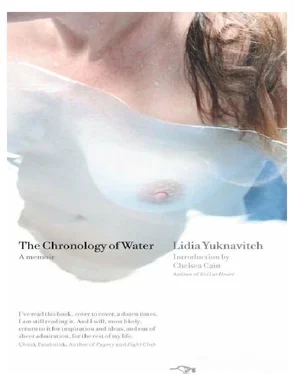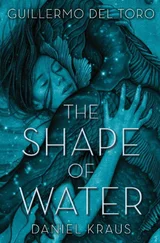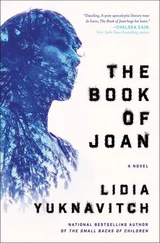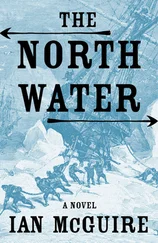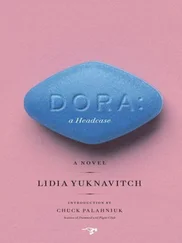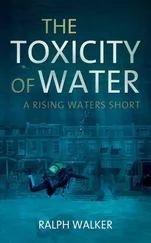Reality lost its hold on me by the time I was 10.
Very good swimmers spend their youth trying to swim to an endpoint like the Olympics. A tangible goal you are living for. Training for. Year after year. Something to give you self worth. Something to make you feel special. And if you were fast enough, maybe you could even swim all the way to a new life.
So when the Olympic Boycott happened, it proved what I already suspected was true. Reality could disappear in an instant — a man could take it from you forever.
I think the beginning of my deepest acts of self destruction often have something in common — a question that comes up in different forms over the course of a life-when the thing you are living for dies right in front of you, why go on? It’s a sadness that enters us all, just differently I suppose. But that Olympic boycott was one of my earliest moments of consciousness with regard to the mutability of reality in the world. Something called “politics” could steal your personal life. Just like something called “father” could. And I’d already grown up through the Nixon years and survived early Catholic upbringing … so even children understood to be cynical.
On the hopeful side though, swimming, books, art, and love — those worlds are still most real to me. In the best sense of that puny word.
You purposely divulge few details relating to your drug use and you don’t declare whether or not you have a “problem” with either drugs or alcohol, although you mention going to rehab and jail both more than once. What was your thinking about this part of your narrative?
Over the years I have become very disappointed in the idea that there can be only one, monolithic narrative about alcoholism or addiction. What I mean is, we’ve come to a time in both capitalism and literary history where unless you tell the right story about drug and alcohol dependency, you don’t get to tell it at all. And that one, right story is most often dictated by the market — by agents and editors and publishers and media.
What a consumer audience needs the story to be.
If you write outside of those lines, you will more often than not be coached back into the center.
I think of the writers and painters and musicians who have inspired me to not kill myself and keep going. Most of them did drugs and alcohol. All of them, really.
I never say in this book what happened to the woman I hit head on with my car. I have deferred that information purposefully. Because I want you to stay with me — me drunk driving across eight lanes of freeway traffic at midnight in my car — stay with me inside my own pain and grief and vodka breath and pee and barf-stay with me as the gunpowder smell from the airbags fills the car.
Sometimes we’re just sad. And wrong-headed. And drunk. That’s all.
There are so many stories to tell about what we do to our bodies.
There is a history to the mythos about addiction in the country-we’ve always burned witches — but I think the potent turning point was probably the establishment and codification of A.A. in this country. And the subsequent nationalized embrace of the general principles of the A.M. A. and the A.P.A. and the bible of the Diagnostic and Statistical Manual of Mental Disorders — how each of these defines illness and cures. Not to mention religion’s role in the false narrative of redemption. Now a whole industrial complex exists to serve the addiction narrative, along with a handy pharmaceutical empire.
My mother was an alcoholic. But I never think of her that way. I think she was in pain most of her life. I think she was just trying to drown a sadness that wouldn’t lift. I think if I had been her I would have killed myself like she tried to. I wish I had come conscious sooner. Maybe we could have talked about it. What drinking is. What it isn’t.
The other thing I’d say is that if we didn’t have drugs and alcohol, we wouldn’t have art. I know that is not a popular thing to say but I believe it is true nonetheless. Our drug and alcohol excesses kill people. Yes. But they also are part of who we are as artists. Part of why cultural production exists. Whether we want to admit it or not.
You write about the night you mother attempted suicide and how it angered you so that you wrote, “When I came out of the bathroom I felt a little bit like a person who could kill her.” It seems as if your relationship with your mother was more complex and complicated because while she angered you she was also the parent who was there for you in ways your father was not such as taking you to and from swim practice and setting you free to accept the swim scholarship from Texas Tech in Lubbock. As your mother was dying you told her that you loved her. Did this love include forgiveness? Can you say a bit about when and how this forgiveness developed?
You know Marguerite Duras once said “in childhood and the lives that follow, the mother represents madness. Our mothers remain the craziest people we’ve ever met.”
My mother remains the craziest person I ever met. But I mean something quite complex when I say that, maybe even profound. Up until the death of my daughter I would say that I maintained an antagonistic stance with my mother. I fought with her-I chose to fight with her-to find my own edges. She let me. She fought back. I brought my rage and pain right up to the surface of her puffy with drink skin. She let me. Maybe she even drew it out of me. Though we never laid a hand on each other.
We raged by and through one another. Not the rage of the father or symbolic father. The rage of women let loose, uncontained, when no one but us was in the house. I remember how her blue eyes went to the color of steel. I remember admiring it.
How she let me down of course is that she never took my sister and me out of that house, away from our father. She didn’t save us.
How she was there for me though was that she took me. She didn’t flinch. She took the full force of my adolescence and young adulthood and all the hatred and rage I had stored up and she didn’t move a muscle. I yelled. She yelled back. It’s a survival skill. A skewed one, to be sure, but one that carries an unusual strength. Sometimes I think our fighting bore me.
The last time she tried to “spank” me I was 10. She broke several blood vessels in her hand. I already had a muscled up swimmer’s butt. I just stared at her after she hit me as hard as she could on the ass. I think she knew in that moment what would rise between us. All the rage we carried to survive my father. Everything it would take to enter “woman” in this still dumb world.
When my daughter died I broke. Open. Into stories. For the first time in my life, I wanted to know what my mother’s story was. Badly. So I asked her. When I explored what my mother’s story had been all I felt was compassion for the girl of her. Someone should have done something to save her. No one did. It’s a wonder she was alive at all.
Maybe forgiveness is just that. The ability to admit someone else’s story. To give it to them. To let it be enunciated in your presence. It’s your job not to flinch.
Another subject that you name, but don’t go into detail is your father’s sexual abuse. Throughout the narrative there are references to the narrator’s experience such as, “Or all the nights I made him [Phillip] break into other peoples’homes the way my father had broken into me,” and during a conversation with Andy after the narrator tells him that her father was abusive and he asked what the father did, the narrator’s reply is simply, “Sexual.” Your father moved to Oregon from his home in Florida so that you could help care for him. Did you come to find forgiveness with your father? Was it the same as with your mother or different? How so?
Читать дальше
